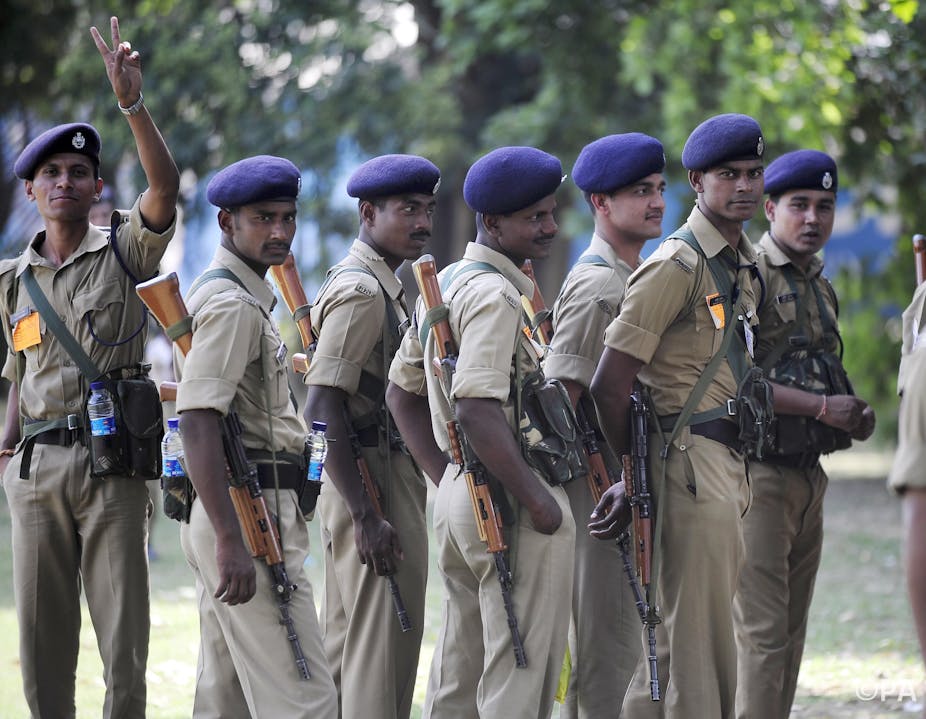When a highly populous, rapidly developing, nuclear armed, space-voyaging and increasingly assertive Asian nation announces the purchase of its third aircraft carrier, a few months after launching its first domestically-produced nuclear submarine, a nervous reaction in the West may appear natural.
After all, China’s economy has been growing rapidly for more than 30 years, allowing Beijing to enhance its military capabilities at a corresponding rate. Inevitably, this has drawn Western attention and China’s “rise” is now among the most hotly debated issues in global affairs – particularly at moments such as the latest Senkaku/Diaoyu islands incident.
Is China a threat or an opportunity? Will it wield its new powers responsibly or for selfish gain? Questions like these circulate widely as Americans, Australians, Europeans and others watch China with cautious – and sometimes nervous – eyes.
Consider this, though: the country which in November purchased its third aircraft carrier, and which earlier this year launched its first domestically built nuclear submarine was not China, but India.
India is often regarded as today’s second “rising” power. It shares many attributes with China – notably a large, growing, modern and well-equipped military – and yet it rarely provokes anxiety in the West. The reasons for this warrant careful consideration.
One of the club
Broadly speaking, India is met with less suspicion because it is seen as more like “us”. English, in conjunction with Hindi, is the Indian language of government. India is democratic and capitalist and due to its regrettable colonial past it shares cultural and historical links to the United Kingdom and is a member of the Commonwealth. To a significant extent, it is “one of the club”.
This affinity is evident in the West’s relations with India. In a speech to the Indian parliament in 2010 for example, US president Barack Obama emphasised “our shared interests and our shared values” (and variations of the word “democracy” appeared no fewer than 21 times). US politicians are more lukewarm when addressing China’s leaders, talking instead of “building trust” and “seeking common ground”. Similarly, in 2012, the then Australian prime minister, Julia Gillard, and India’s prime minister, Manmohan Singh, spoke of their nations’ common values as liberal democracies.
The world’s democratic systems are of course not identical, but they are bound by the powerful myth that democracy is necessarily good. Correspondingly, any non-democratic system is implicitly identified as “bad”. History does not help the communist cause. Most infamously, the Soviet experiment descended into dictatorial violence and brutality. Yet communism, in its intended form, is not inherently evil. Moreover, a truly communist country has never actually existed and so technically, at least, it has no track record for us to assess. The communism we imagine is the key factor.
Certainly, China has a dubious record of upholding human rights. At times it is highly assertive towards its neighbours; it engages in international “cyber warfare”; and it seems to have only recently begun caring to any meaningful extent about the environment within and beyond its borders, among other things. But China is far from alone. Other nations guilty of these crimes (at one time or another) include the United States, Australia, the UK – and India.
Self-fulfilling prophecy
Broadly speaking, China is doing little to demonstrate that it represents a major imminent security threat to the West, or even to its Asian neighbours. In the recent round of disputes over the Senkaku/Diaoyu islands China has acted aggressively and perhaps unreasonably, but the situation has a long and complex history. Moreover, the other key actor, Japan, has long enforced its own regional “Air Defence Identification Zone”, attracting claims of hypocrisy from China that went largely unreported in the West.
Meanwhile, India consistently devotes a larger proportion of its GDP to its military than does China; for the past five years it has been the world’s largest importer of weapons, and it is expected to be the fourth largest military spender by 2020. Yet a new Indian aircraft carrier is immediately considered a welcome development, while in the case of China we are grimly told: “It’s not time to panic. Yet.”
Importantly, the more we assume that China is a probable instigator of hostility and even war, the more we ready ourselves for that eventuality. Indeed, the “China factor” is used to justify efforts by India, as well as Japan, the Philippines, Taiwan and others, to bolster their defence capabilities, leading to increasing tensions across a highly sensitive region. The “China factor” has also been used to rationalise the United States’ recent “pivot” (or “rebalancing”) towards the Asia Pacific. China is becoming a bigger threat, the logic goes, so others should prepare.
Yet we should also recognise the potential effects of an “India factor” in China and that the actions of others will not go unnoticed in Beijing. In consequence we risk trapping ourselves in a self-fulfilling prophecy of Chinese aggression. We may, in other words, end up literally imagining a threatening China into existence and through our ideas and actions become faced by the fictional demon we feared all along.
In short, ideas matter, and not just in policy-making circles. China might declare war on others in the future. It might show intent of becoming that all-conquering superpower which successfully pushes Chinese culture and values upon the world and dictates global affairs. But it might not, and most experts agree that for various reasons this appears highly unlikely.
The biggest danger is in expecting it to happen, as we welcome moves by other major powers to equip and arm themselves for an imagined worst case scenario. Put simply, we should not allow ourselves to be led by the fear of what might be. The disastrous and ill-conceived “War on Terror” showed us that hysteria over a fictitious enemy can reap terrible, destructive and long-lasting consequences. For now, China’s future (just like India’s) is unclear. In the West we should think twice before assuming we know otherwise.

